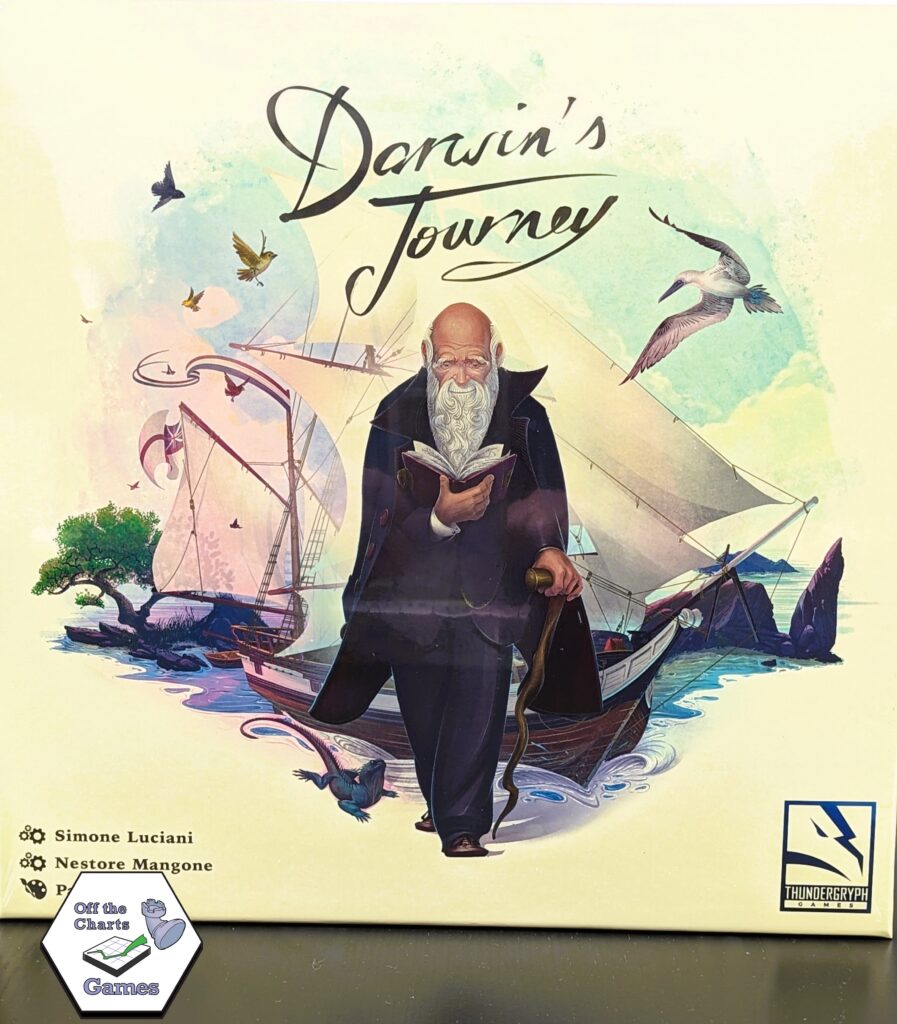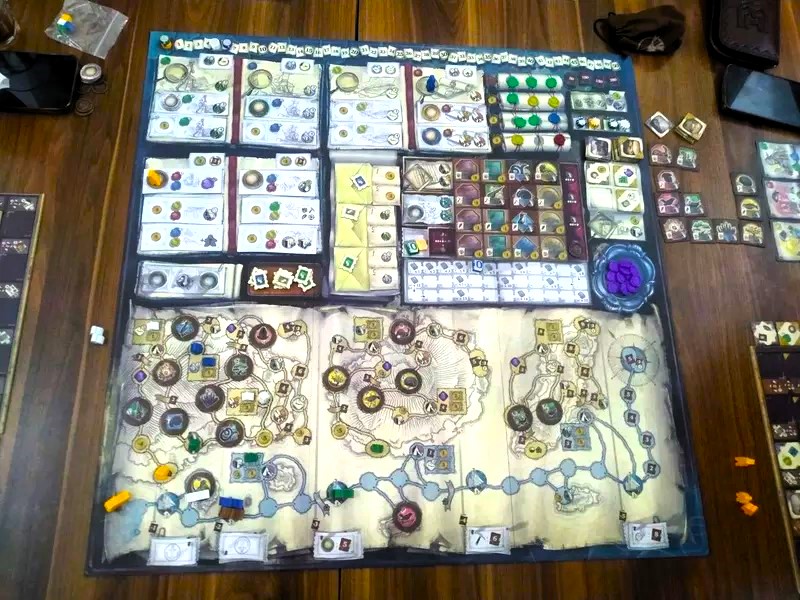
Darwin’s Journey is a worker placement game by game designers Simone Luciani and Nestore Mangone. Players recall Charles Darwin’s memories of his adventure through the Galapagos islands, which contributed to the development of his theory of evolution. With an innovative worker progression system, each worker will have to study the disciplines that are a prerequisite to perform several actions in the game, such as: exploration, correspondence, gathering and dispatch of repertoires found on the islands to museums in order to contribute to the human knowledge of biology. (publisher description) – – 1 to 4 players – – 60 to 120 minutes

In Darwin’s Journey players will explore three islands of the Galapagos to gather specimens and expand knowledge of the natural world. The object is to score the most points after five rounds. In each round players will place four and possibly five workers to take a variety of actions.
Each player begins the game with three crew members. Each of these will have a specific skill either as a writer, a navigator, an academic, or an explorer. Additional skills for more powerful actions can be acquired by these crew members through the use of an academic member. A fourth crew member is wild however, cannot acquire additional skills. Skills can be acquired for a crew member to be a specialist or to be able to have many different skills. The writer issues correspondence in search of bonuses. The navigator moves a player’s ship to gain access to the three islands and to facilitate scoring on public goals. The explorer skill is needed in order to move the explorer workers – one for each island.
In addition to their crew, each player begins the game with two personal goals, five tents, six lens tokens, and twelve stamps. On a turn each player will place a worker and do the action of that location. That worker represents a crew member who must have the correct skill set to be able to do that activity. There are four main action locations where multiple workers can go. The first worker placed there on one of these is free. All others must pay a fee to use the same location. There are additional action locations that have stronger actions that must be unlocked before they can be used. These require a player to pay for and place one of their lens tokens on it marking ownership. These are single use locations and when an opponent goes to this location the player whose ownership lens is on it receives a benefit.
Much of the game action happens when explorers move about on the islands. There they can find specimens, do museum research, pitch tents, gain additional personal goals, etc. Some of these actions will move a worker ahead on the evolution track. Each crew member has a skill criterion which will grant a bonus when completed. At the end of each round there is scoring for public goals placed along the ocean track where player’s ship moves along with Darwin’s Beagle ship. A ship’s relationship to the Beagle will affect scoring.
Final scoring happens at the end of the fifth round. Points are awarded for personal goals achieved, for any crew member that has acquired a total of five or six skills, for placing all five tents on the islands, and your museum modifier times your placement on the exploration track. The player with the most points is the winner.
There are a bunch of ways to go about achieving the goals and the points. This is a game about exploring with many different paths to explore for points.
| CONTINUE TO CHECK IN FOR THE LATEST IN BOARD GAMES AND JIGSAW PUZZLES. |
- Located at 30 NW 2nd Street in Historic Downtown Gresham.
- We have a full range of family games, strategy games, Euro-style games, war games, card games, dice games, and more. Additionally, for the jigsaw puzzle enthusiasts we carry quality puzzles from Ravensburger, Cobble Hill, White Mountain, Dowdle, Pomegranate, and New York Puzzle Company.
We proudly serve Gresham and the greater Portland and Vancouver area.